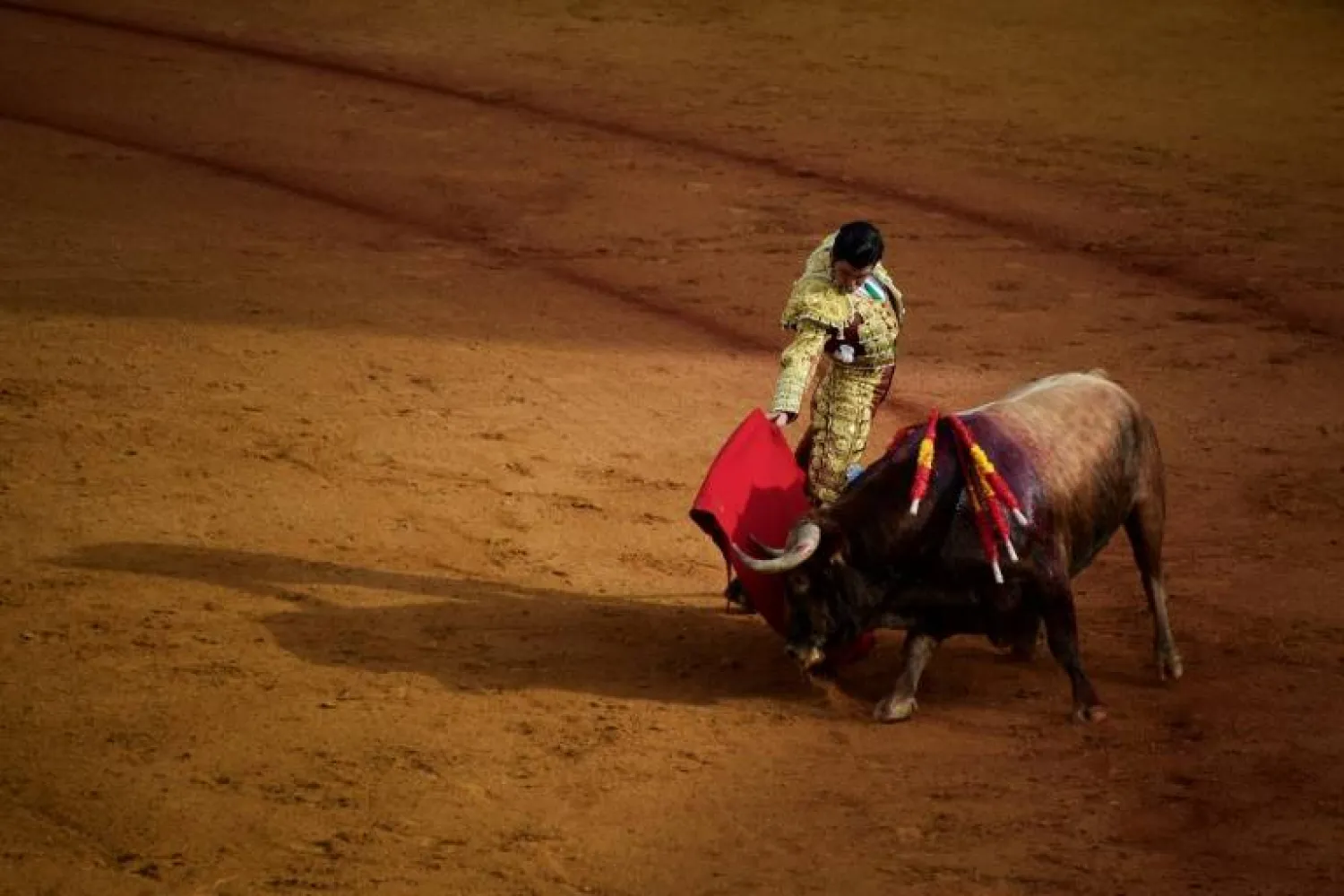Spain's left-wing government said this week it would scrap a national prize for bullfighting, a move which angered supporters of the controversial spectacle but was welcomed by animal rights groups.
"A growing majority" of Spaniards are concerned about animal welfare, so "we did not believe it is appropriate to maintain an award that rewards a form of animal abuse", said Culture Minister Ernest Urtasun, who belongs to hard-left party Sumar, Socialist Prime Minister Pedro Sanchez's junior coalition partners.
"I think they understand even less that these forms of animal torture are rewarded with medals that come with monetary prizes using public money," he added during an interview with private television La Sexta.
The annual prize, which was created in 2011 under a previous Socialist government and was first awarded in 2013, grants 30,000 euros ($32,000) to winners, according to AFP.
Top matadors such as Enrique Ponce and Julian Lopez, known as "El Juli", have won the prize in the past.
Bullfighting retains a passionate following in some circles in Spain and leading matadors are treated as celebrities.
But the practice's mass appeal has faded and polls show a rising disinterest across the country, especially among the young.
Only 1.9 percent of Spain's population attended a bullfight during the 2021-22 season, down from 8.0 percent in 2018-19, according to a survey of leisure habits carried out by the culture ministry.
In recent years bullfighting has become a key issue in Spain's culture wars, pitting left-wing parties against conservatives who argue it is an integral part of the country's identity.
Spain's main opposition conservative Popular Party (PP) swiftly promised to reinstate the prize if it returns to power.
PP spokesman Borja Semper accused the government of being "obsessed with sticking its finger in the eye of those who do not think" as it does, while the party's spokesman in parliament, Miguel Tellado, said bullfighting was "part of our culture, of our traditions".
Several regional governments, including one run by the Socialists in Castilla-La Mancha where bullfighting is popular, said they would create their own bullfighting prizes to replace the one being scrapped.
The Fundacion del Toro de Lidia, an NGO that promotes bullfighting in Spain, accused Urtasun of carrying out his duties in a discriminatory way against bullfighting.
"A culture minister cannot exercise his powers based on his personal preferences, he has the obligation to promote and encourage all cultural manifestations, among which is bullfighting," it said in a statement.
But animal rights groups welcomed the government's decision.
Animal rights party PACMA called the measure a "positive step" and urged the government to go further with the "total abolition" of all forms of public support for bullfighting.
"We consider it to be a form of legalised animal abuse and cannot be justified under any circumstances, let alone encouraged through any kind of economic or social incentive," it said in a statement.









